 “See then that you walk circumspectly, not as fools but as wise, redeeming the time, because the days are evil. Therefore, do not be unwise, but understand what the will of the Lord is. And do not be drunk with wine, in which is dissipation; but be filled with the Spirit, speaking to one another in Psalms and hymns and spiritual songs, singing and making melody in your heart to the Lord, giving thanks always for all things to God the Father in the Name of our Lord Jesus Christ.” Ephesians 5:15-20 Our Highest Priority We are to love God with all of our heart, soul, mind and strength (Mark 12:30). We are to worship God in spirit and in truth (John 4:23-24). Peaceful, Joyful and Thankful “And let the peace of God rule in your hearts, to which also you were called in one body; and be thankful. Let the Word of Christ dwell in you richly in all wisdom, teaching and admonishing one another in Psalms and hymns and spiritual songs, singing with grace in your hearts to the Lord. And whatever you do in word, or deed, do all in the Name of the Lord Jesus, giving thanks to God the Father through Him.” Colossians 3:15-17 Preaching and Teaching the Word of God is a Vital Part of Worship Teaching and preaching the Word of God is a vital part of worship. Congregational singing and music are also part of the ministry of the Word of God. Songwriters ought to be as skilled in the Scriptures and as concerned for Biblical integrity and Theological accuracy as the preacher and teacher of the Word of God. 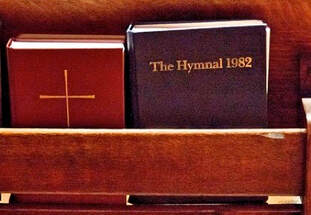 Great Hymns Renew Minds and Transform Lives Sadly, however, in many modern churches, the treasury of church hymns has been discarded in favour of modern fads and fashions. Instead of Psalms, hymns and spiritual songs, which teach and admonish one, simple songs are being sung to stir the emotions more than the mind. The doctrinal and didactic depth of classic hymns which have edified, educated and encouraged many generations are generally being cast aside in favour of pop-song lookalikes. Mystical mantras which seem to dull the intelect and whip up as much emotion as possible seem more commonplace than renewing the mind with doctrinal depth and Theological content. The Whole Church Service is Meant to be Worship Sermons are being shortened and lightened and more time is being given to music ministry. The preaching and teaching of the Word of God has moved from being the centre piece of worship services to, now, being viewed as something different from worship. The musicians are often described as “the worship team.” Some churches even state: “Now that we are finished with the worship, let us hear from the Word of God!” Renewing our minds by faithful teaching of the Word of God is an integral and essential part of worship. Awe Inspiring Hymns Have Doctrinal Depth Most of the classic hymns of the church were written by ministers and missionaries, scholars of the Scripture and this is clearly seen in the doctrinal depth and intellectual breath of so many of these inspiring and challenging hymns. 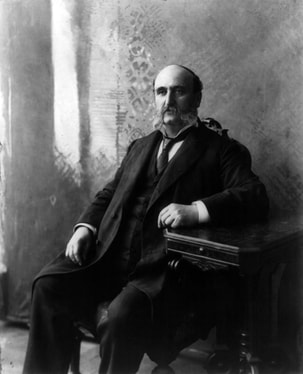 Rise of Gospel Songs Towards the end of the 19th century, there was a rise of Gospel songs, particularly led by Ira Sankey, a gifted singer and song writer who accompanied D.L. Moody’s Evangelistic campaigns. Sankey pioneered a simpler, more popular style of music, better suited to Evangelism than the classic church hymns. He wrote Gospel songs – mostly short and simple refrains in the style of the popular music of his day. Sankey sang each verse as a solo and the congregation would be encouraged to join in singing the chorus, or refrain. From God Focussed to Audience Focussed Singing Sankey’s Gospel songs provoked some controversy at first, but soon there were far more Gospel songs being added to the hymnbooks than the classic hymns. Whereas most of the classic hymns had been songs of praise and worship directly addressed to God, most Gospel songs were expressions of personal testimony aimed at an audience of people. The Danger of Sidelining Hymns Gospel songs have played an important and effective role in evangelism. They are an important part of our rich heritage of church music. However, the classic hymns, addressed to God, saturated in Scripture, normally have a greater doctrinal depth and should never be sidelined. Truths that Transform Most hymns were composed with a goal of teaching and reinforcing Biblical doctrinal concepts that make demands on human intellect, proclaim the truth of the Word of God and seek to enhance the worshippers comprehension of the truth. 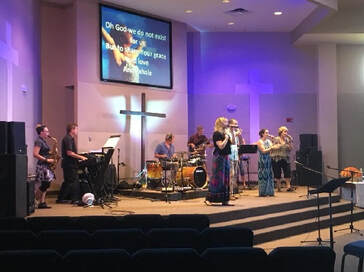 The Danger of Sentimentality and Anti-Intellectualism However, a sentimental anti-intellectualism has come to infect much of contemporary church music. This has come along with a decreasing emphasis on preaching and teaching and increasing emphasis on entertaining the audience. Many Church Goers Lack Discipleship and Discernment Making people feel good leaves the average churchgoer untrained and unable to discern between good and bad doctrine and even in some cases, between truth and error. Sentimentality is No Substitute for Scripture Some music is trite and frivolous, shallow, superficial and flippant. Some sentimental favourites which are practically devoid of Scriptural substance include: “Love Lifted Me”; “Take My Hand Precious Lord”; “Whispering Hope”; “It is No Secret What God Can Do” and “In the Garden.” As an example of empty and mindless sentimentality, the words of “In the Garden” turn out to be a shallow little rhyme: “I come to the garden alone, While the dew is still on the roses: And the voice I hear, Falling on my ear, The Son of God discloses. And He walks with me And He talks with me And He tells me I am His own; And the joy we share As we tarry there, None other has ever known. He speaks and the sound of His voice Is so sweet the birds hush their singing; And the melody That He gave to me Within my heart is ringing. I’d stay in the garden with Him Though the night around me be falling; But He bids me go – Through the voice of woe His voice to me is calling.” There is nothing particularly Christian, or of Scriptural substance, in this pleasant, feel good, piece of sentimental poetry and this is hardly the worst example.  Revolution in Music Over the past century the popular concept of worship has changed as radically as the styles of music in the church. Along with distorted concepts of worship and diluted songs of praise, has risen numerous dangerous movements in contemporary society. Excesses of Emotionalism and Embarressing Exhibitionism The emphasis on feelings, emotions and blessings led to the shocking spectacles of the Toronto Blessing’s mindless laughter and embarrassing exhibitionism which brought much of the church into disrepute. Services have become superficial, sermons have become shallow and singing has lost much of its substance. Rise of the Praise Chorus From the 1970s on, another major shift in church music occurred. Gospel songs were gradually replaced with the praise chorus. These choruses were generally shorter than the Gospel songs, with few stanzas, but like the hymns, praise choruses were usually songs of praise directed to God. Singing the Psalms Disciples Worshippers The Psalms are the textbook of worship for Israel, it was their prayerbook and their songbook. The Levites, skilled in the Scriptures, were the musicians and served as Israel’s teachers. Effectively, the musicians discipled the nation of Israel through the singing of the Psalms. Songwriters are Teachers The fact is that songwriters are teachers. Many of the lyrics they write become far more deeply and permanently ingrained in the hearts and minds of the hearers than what they hear taught from the pulpit. How many of our songwriters today are skilled in Theology and Scripture? 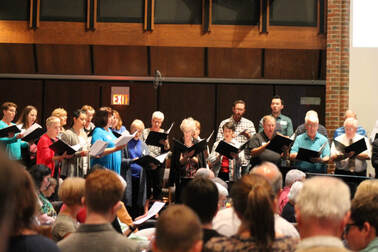 Does our Worship Honour God? Much of the contemporary church is guilty of dishonouring God with faint praise. God deserves our best, our most wholehearted, the most excellent of praise. God Deserves our Very Best There should be no place for mediocrity and half-heartedness in the worship of our Creator and Eternal Judge. Hymns such as “Immortal, Invisible, God Only Wise”, are superior to almost anything being written today in poetry and content. “Great Father of glory, pure Father of Light, Thine angels adore Thee all veiling their sight; All praise we would render – O help us to see Tis only the splendour of light hideth Thee!” Worship the Lord in the Beauty of Holiness Church music should be God-focussed. Our songs of praise and worship should promote a high view of God. The content of what we sing should be Biblically sound and Theologically faithful. Church music should prepare the hearts and minds of people for the preaching and teaching of the Word of God. “I will praise You, O Lord, with my whole heart; I will tell of all Your marvellous works. I will be glad and rejoice in You; I will sing praise to Your Name, O Most High.” Psalm 9:1-2  Dr. Peter Hammond Livingstone Fellowship P.O. Box 74 Newlands 7725 Cape Town South Africa [email protected] www.LivingstoneFellowship.co.za See also: Worship in Psalms and Hymns Reforming Music Music in Life and Worship The Christian and Music
0 Comments
Leave a Reply. |
DiscipleshipArticles
All
Archives
May 2023
|

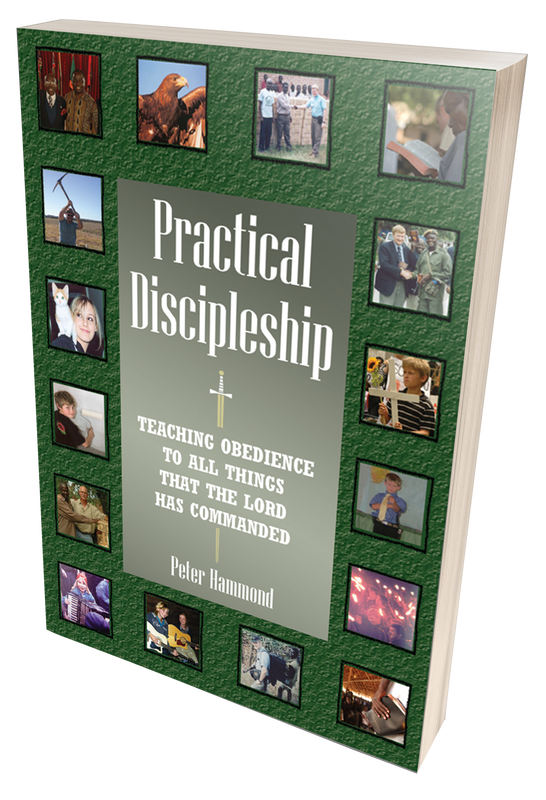
 RSS Feed
RSS Feed